OFF-ROAD SELF-DRIVING AT THE UNIVERSITY OF WASHINGTON
OFF-ROAD SELF-DRIVING AT UW
High-speed, resilient, off-road autonomy
University of Washington’s team of researchers from the Paul G. Allen School of Computer Science and Engineering and Applied Physics Lab are advancing off-road autonomous driving in complex terrain with novel approaches to perception, planning, and control.
What we Do
We are developing a complete system that provides a geometric and semantic understanding of a ground vehicle’s local environment, rapidly evaluating alternate routes and contingencies, and aggressively adapting behavior to contend with evolving terrain
Go to https://www.youtube.com/watch?v=D4HDaBpnHEQ to see full video. DISTRIBUTION STATEMENT A. Approved for public release: distribution unlimited.
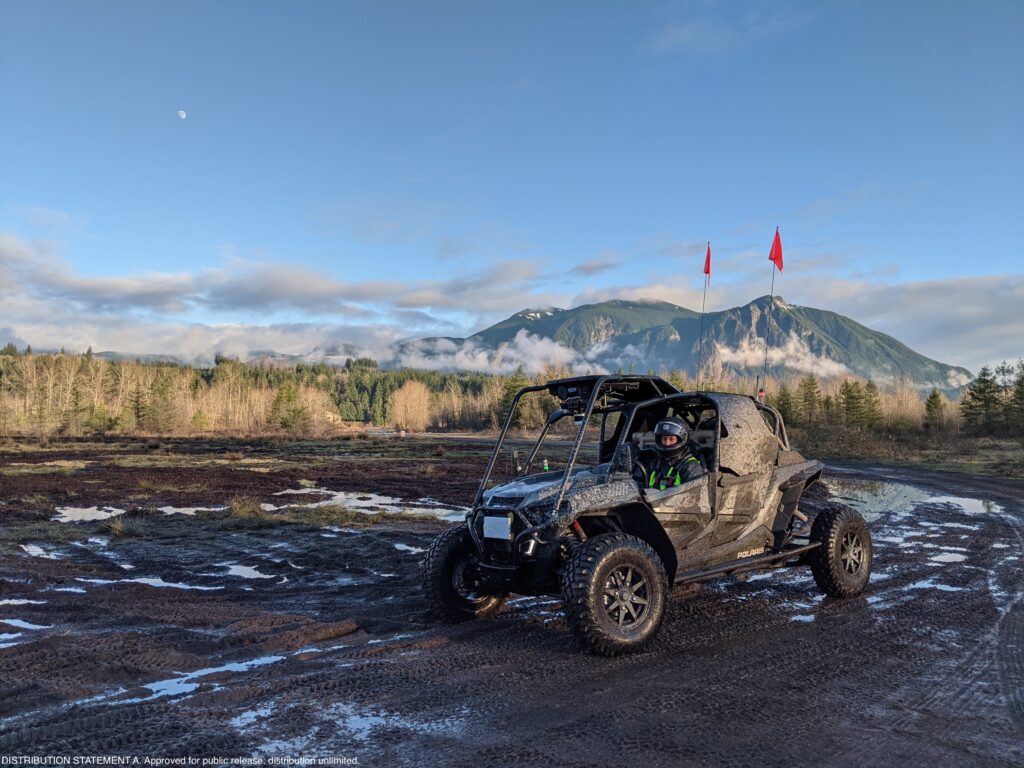
Continuous Field Testing
The UW team is in the field every week validating the autonomy stack with a small fleet of Polaris RZR off-road vehicles with a safety driver. The team’s primary test sites are located in Snoqualmie and Ellensburg, Washington.
Funding
UW is honored to be selected to participate in the Defense Advanced Research Projects Agency (DARPA) Robotic Autonomy in Complex Environments with Resiliency (RACER) program. The program’s goal is to develop and demonstrate autonomy technologies that enable unmanned ground vehicles to maneuver in unstructured off-road terrain at the limit of the vehicle’s mechanical systems and at, or beyond, human-driven speeds and efficiencies.
Go to https://www.youtube.com/watch?v=AlNOzhza7pg to see full video. DISTRIBUTION STATEMENT A. Approved for public release: distribution unlimited.
A short history of UW off-road autonomy
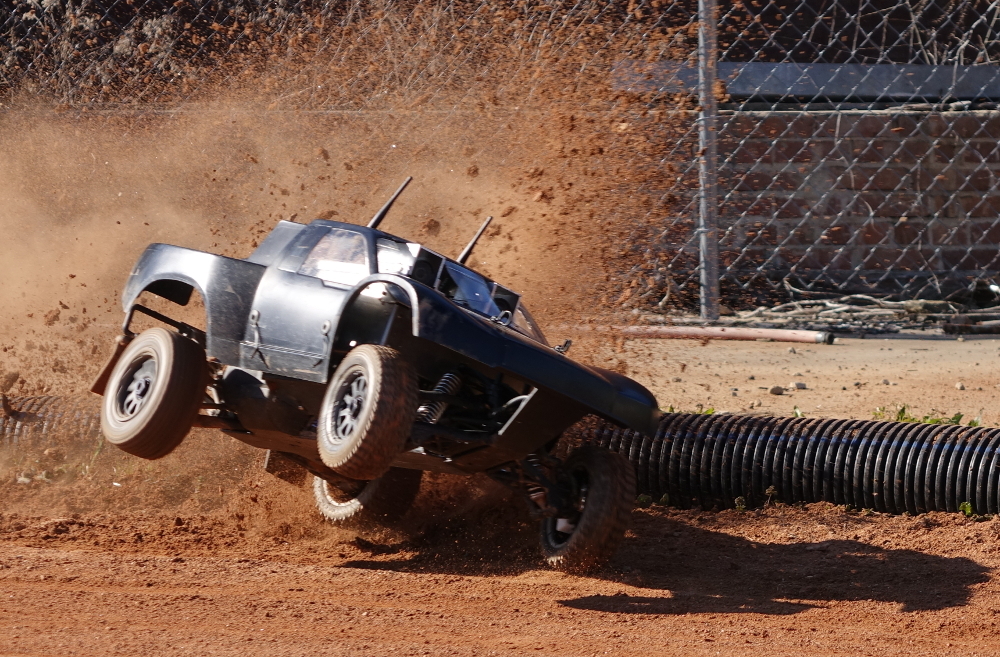
PI Boots’ (then at Georgia Tech) proposal on Learning-Enabled High-Speed Off-Road Navigation was funded under US Army Research Lab’s Distributed and Collaborative Intelligent Systems and Technology (DCIST) Collaborative Research Alliance.
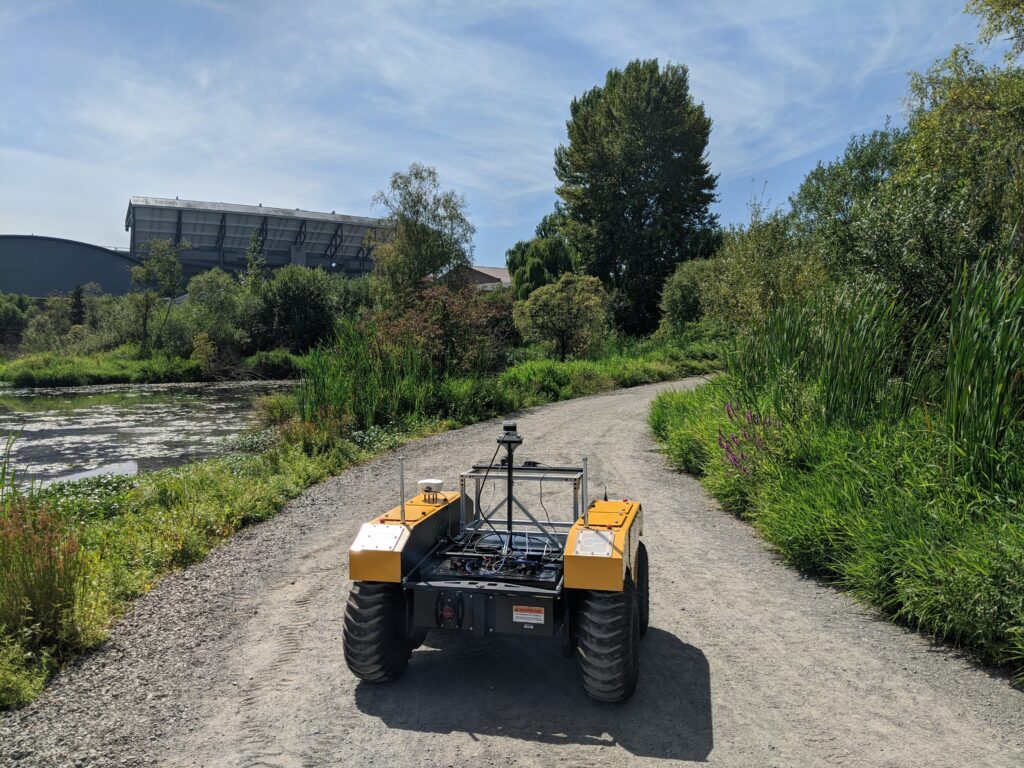
UW’s proposal ‘Learning-Enhanced Model Predictive Control for Robust Navigation in Complex and Dynamic Environments’ was funded under the US Army Research Lab’s Robotics Collaborative Technology Alliance (RCTA). The UW team was led by PI Boots.
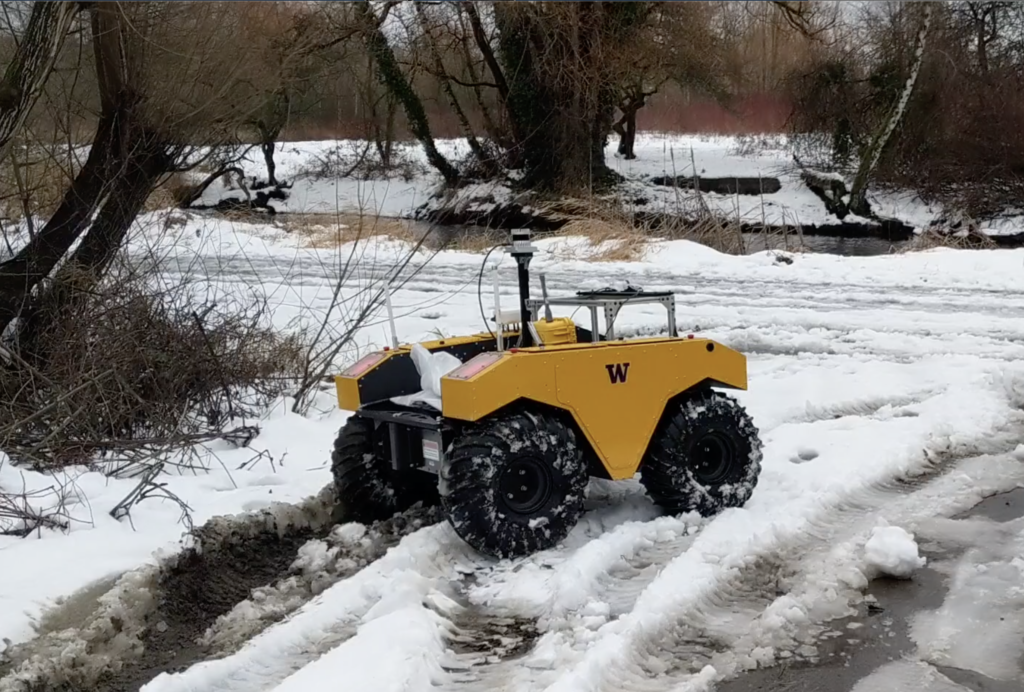
UW’s proposal ‘Safe, Fluent, and Generalizable Outdoor Autonomy’ was funded in Cycle 1 of the US Army Research Lab’s Scalable, Adaptive, and Resilient Autonomy (SARA) program. The UW team was led by Principal Investigators Byron Boots, Dieter Fox, Sidd Srinivasa, and Panos Tsiotras.
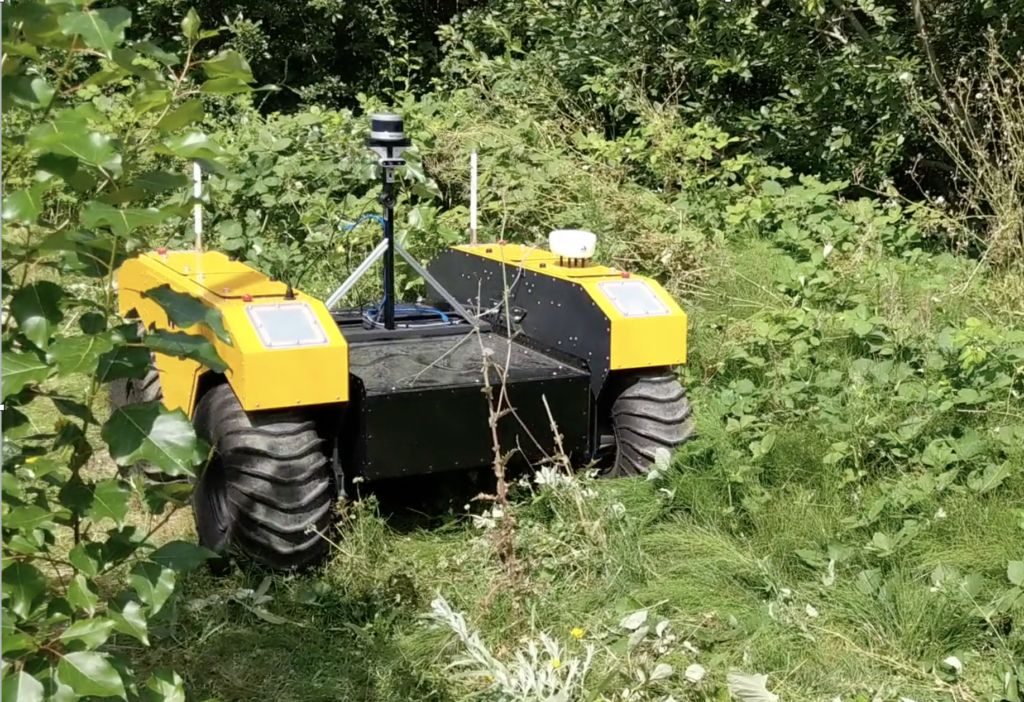
UW’s proposal on ‘Learning Complex Terrain Maneuver from Demonstration’ was funded in Cycle 2 of the US Army Research Lab’s Scalable, Adaptive, and Resilient Autonomy (SARA) program. The UW team was led by Principal Investigators Byron Boots, Dieter Fox, and Sidd Srinivasa.
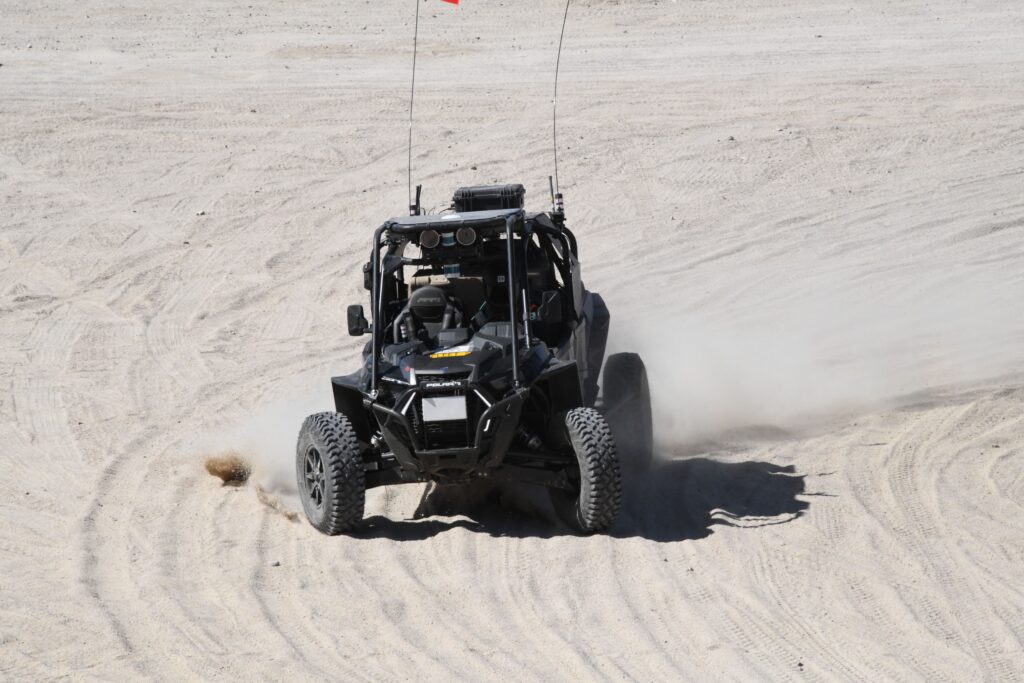
UW is selected to participate in the Defense Advanced Research Projects Agency (DARPA) Robotic Autonomy in Complex Environments with Resiliency (RACER) program for off-road autonomy. UW team is led by Principal Investigator Byron Boots and Co-Principal Investigators Greg Okopal, Dave Dyer, Sidd Srinivasa, and Dieter Fox. Photo Credit: https://www.darpa.mil/news-events/2022-09-16